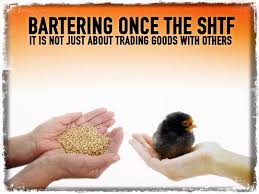
Breaking News
 James O'Keefe: My entire speech at AmericaFest 2025. We're not stopping. Join us to expose..
James O'Keefe: My entire speech at AmericaFest 2025. We're not stopping. Join us to expose..
 U.S. vs. Chinese Military Comparison – Focus on Asia-Taiwan Scenario
U.S. vs. Chinese Military Comparison – Focus on Asia-Taiwan Scenario
 DoJ Sues Four More States for Failing To Produce Voter-roll Data
DoJ Sues Four More States for Failing To Produce Voter-roll Data
 World's Largest Aviation Giant Abandons Google Over Security Concerns
World's Largest Aviation Giant Abandons Google Over Security Concerns
Top Tech News
 Perfect Aircrete, Kitchen Ingredients.
Perfect Aircrete, Kitchen Ingredients.
 Futuristic pixel-raising display lets you feel what's onscreen
Futuristic pixel-raising display lets you feel what's onscreen
 Cutting-Edge Facility Generates Pure Water and Hydrogen Fuel from Seawater for Mere Pennies
Cutting-Edge Facility Generates Pure Water and Hydrogen Fuel from Seawater for Mere Pennies
 This tiny dev board is packed with features for ambitious makers
This tiny dev board is packed with features for ambitious makers
 Scientists Discover Gel to Regrow Tooth Enamel
Scientists Discover Gel to Regrow Tooth Enamel
 Vitamin C and Dandelion Root Killing Cancer Cells -- as Former CDC Director Calls for COVID-19...
Vitamin C and Dandelion Root Killing Cancer Cells -- as Former CDC Director Calls for COVID-19...
 Galactic Brain: US firm plans space-based data centers, power grid to challenge China
Galactic Brain: US firm plans space-based data centers, power grid to challenge China
 A microbial cleanup for glyphosate just earned a patent. Here's why that matters
A microbial cleanup for glyphosate just earned a patent. Here's why that matters
 Japan Breaks Internet Speed Record with 5 Million Times Faster Data Transfer
Japan Breaks Internet Speed Record with 5 Million Times Faster Data Transfer
Selco: The Reality of Barter and Trade in an SHTF Economy

Barter is a hot topic in prepper circles, so I thought we should ask someone who has a lot of real-world experience with trade in a dangerous situation.
If you don't know Selco, he survived a year in Bosnia when his city was blockaded. Supplies were not allowed in or out, and residents were left without utilities and services. This interview is in his own words.
How quickly did people turn to barter once your city was locked down?
It was a matter of a few weeks.
Actually, for ordinary folks, it was a matter of few weeks because we did not get the new reality right at the beginning of everything.
Later when I remembered that period, I realized that even right at the beginning of SHTF there were people who did not want to take money for goods. They asked for valuables like gold, jewelry, or weapon for goods that they had.
Some of them were smart enough to realize that money was gonna become worthless really soon, and even gold and jewelry were only good in the first period, and then only if you had a connection to outside world to exchange it for something useful.
Ordinary folks needed few weeks. It was a process that went from buying goods with money, then buying goods from people who still wanted to take money (at outrages prices) to the moment when money was worthless, and only goods for goods were accepted.

 Advanced Propulsion Resources Part 1 of 2
Advanced Propulsion Resources Part 1 of 2

